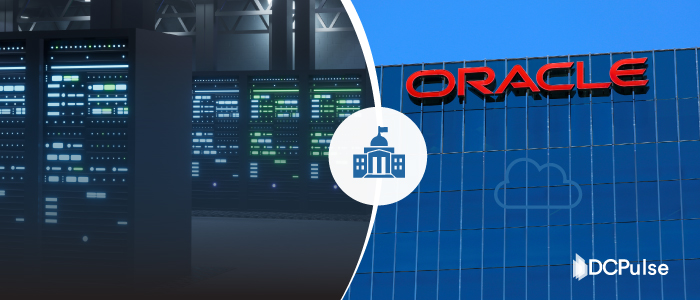July 7, 2025- Oracle has entered into a landmark agreement with the U.S. General Services Administration (GSA) to provide significant discounts on its cloud infrastructure and software licenses to federal agencies, part of a broader push to modernize government IT and lower long-term procurement costs.
Under the new terms, the GSA confirmed that agencies will receive up to 75% off Oracle’s license-based software, including database, middleware, and integration services, alongside reduced pricing for Oracle Cloud Infrastructure (OCI), Oracle’s high-performance AI database (Oracle Database 23ai), and analytics tools. The deal also waives data egress fees, a major point of friction in multi-cloud federal environments and includes “white glove” support for agencies migrating from legacy systems.
GSA Acting Administrator Stephen Ehikian, said, “The Trump Administration is focused on acquiring cutting-edge commercial technologies to modernize federal systems at scale. This landmark agreement with Oracle marks a major step forward in that mission. Oracle’s advanced database, cloud, and AI solutions deliver unmatched speed, security, and scalability, core capabilities for transforming how government manages and secures sensitive data.”
This federal-wide agreement, known as the “OneGov contract”, is notable not only for the size of the discount but also for its strategic timing. It marks Oracle’s first federal infrastructure-wide pricing deal, following similar multi-agency software agreements struck by competitors like Google, Adobe, and Salesforce.
While Oracle had previously offered discounts on licensing, this extension into cloud infrastructure reflects a deeper commitment to public sector growth. The CEO of Oracle, Safra Catz, praised the collaboration, saying
“We are thrilled to work with the GSA to help every department and agency modernize their technology and gain the benefits of Oracle Cloud and AI. Government agencies will be able to do more while spending far fewer taxpayer dollars.”
While the exact discount on cloud services has not been disclosed, reports confirm it is “substantial.” The Wall Street Journal noted that this federal-level OCI deal was part of a broader move by the government to standardize cloud spending and avoid fragmented procurement processes across dozens of agencies.
“Through procurement consolidation, we’re aiming to bring the leverage of the whole, commanding purchasing power of the federal wallet to these [technology providers] to get the best discounts for the taxpayers,” Federal Acquisition Service Commissioner Josh Gruenbaum said in an interview.
Despite the long-term upside, markets responded cautiously. Oracle stock dipped by over 1.5% following the announcement, reflecting short-term concerns around margin compression. Still, the company’s share price remains up more than 40% year-to-date, driven by investor optimism around its AI and cloud verticals.
Analysts say the discount strategy may prove wise in the long run. By embedding OCI into federal digital infrastructure and removing switching barriers, like egress fees and migration complexity, Oracle could secure longer-term, high-value relationships.
This deal was negotiated alongside other tech companies under guidance from the Department of Government Efficiency (DOGE), which is seeking to streamline federal tech spending under the Trump administration.
The deal also adds momentum to Oracle’s growing influence in the defence and public sector cloud. Earlier this year, Oracle launched the “Defence Ecosystem Initiative,” aimed at helping smaller firms navigate Pentagon tech procurement, further signalling its federal ambitions
“Nothing is more important than the national security of the U.S. and its allies, and Oracle has been a cornerstone of this mission for nearly 50 years. Oracle and our defence ecosystem plan to innovate and scale to help the U.S. and its allies deter conflicts and win on physical and digital battlefields,” said Rand Waldron, vice president, Oracle.
Federal IT decision-makers appear receptive. According to GSA estimates, OneGov is expected to accelerate IT cost savings across multiple agencies through November 2025. Participating departments will gain access to Oracle’s AI-native services, improved SLAs, and migration support, all without the hidden fees typically associated with cloud lock-in.
Still, some procurement specialists warn that the lack of specific pricing details on OCI discounts could pose transparency challenges for agencies preparing multi-year budgets, raising questions about whether projected AI and cloud volumes will be enough to offset potential margin pressures.
As the federal government continues to centralize and modernize its IT infrastructure, the Oracle-GSA agreement may become a model for future negotiations between tech giants and public institutions. With discussions already underway to replicate the OneGov framework with other major cloud providers, the government’s pivot toward large-scale, cross-agency tech partnerships appears well underway.





